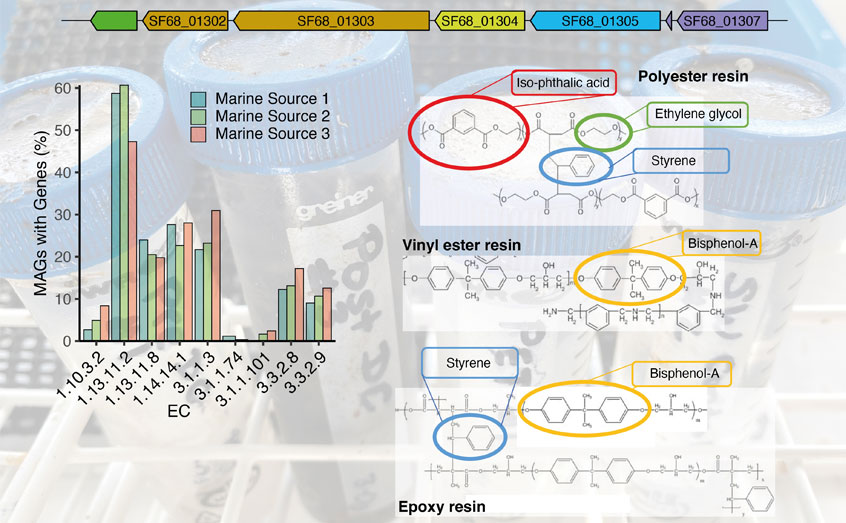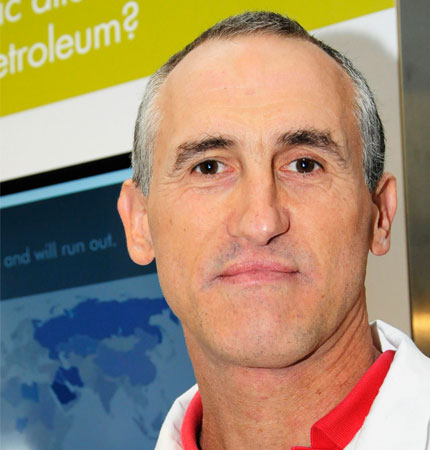Metagenomic Discovery of Marine Microbial Enzymes for Thermoset Resin Composite Recycling
Thermoset resins, such as epoxy or unsaturated polyesters are widely used across industries due to their excellent adhesive properties, mechanical strength, chemical and heat resistance. Products include fiberglass boats, wind turbine blades, paints, coatings, electronics, electrical insulation, and adhesives. But, when thermoset resins have reached their End- of-Life (EoL) there are limited, if any, recycling options, and instead are disposed of in landfill or incinerated under controlled conditions that can lead to leaching or release of potentially toxic organic compounds and heavy metals into the environment or atmosphere. To address this, Sustainable Sailing Ltd have been developing pressolysis – a recycling solution – termed "Extricko" for recycling thermoset composites. This technology currently operates at a lower carbon footprint than current methods for the recovery of thermoset resin monomers; however, further advances are critical to scale these technologies and further reduce the environmental impact of these technologies. The challenge is that thermoset resins are not considered to be biodegradable, although, a small and growing body of knowledge suggests that they do undergo biodeterioration, opening up the possibility to identifying microorganisms or their enzymes to assist with EoL thermoset resin recycling.
SAMS has joined with Sustainable Extricko (SE) to use traditional cultivation techniques and metagenomic analysis to identify marine microorganisms and their enzymes found in the natural marine microbial communities capable of growth on pressolysis-treated thermoset composites as their primary carbon source. Our goal is to work with SE and partners to explore the capacity of these enzymes for thermoset resin biodeterioration based on recombinant expression and enzymatic bioassays, and ultimately to apply engineering biology principals to increase the capacity of these enzymes to deliver greater efficiencies in thermoset resin composite recycling.
The role of SAMS
SAMS has undertaken research to enrich and isolate the microorganisms growing on recycled thermoset resin composite material from the natural environment. They will then undertake bioinformatic analysis of the metagenomic data (DNA sequences) collected from the thermoset resins, to identify key enzymes that may be involved in biodeterioration of the recycled thermoset resins.

Figure: Top: Enzymes in an operon. Bottom-left: the number of genomes with genes that could attack resins; Bottom-right: the chemistry of targeted resins; Background image is the resin composites in their bait traps deployed in the marine environment for 11 weeks to capture bacteria that might attach to and degrade resin.


